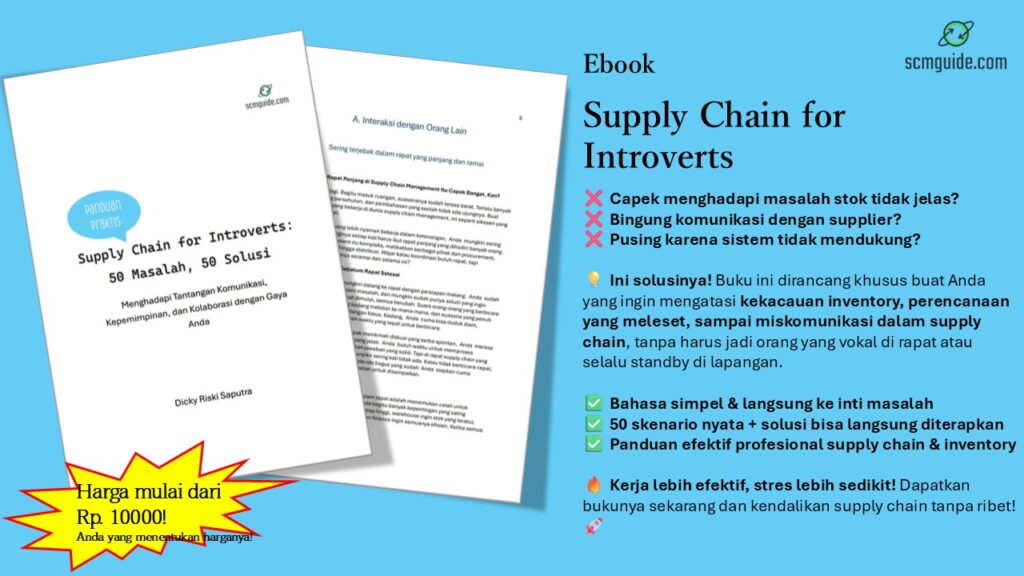In the ever-evolving world of supply chain management, one of the most crucial elements of success is the staff responsible for making it all work seamlessly.
The supply chain is a complex network of interrelated processes, and your role within this ecosystem is multifaceted.
This blog post aims to explore the intriguing question of whether your personality can influence your work results in supply chain management.
Specifically, we’ll examine how assigning you to roles that align with your personalities and strengths can make a significant difference in the outcome.
To do this, we’ll delve into the scenarios of staff members who face challenges when their roles don’t match their character traits.
Before we go further into this topic, don’t forget to follow my LinkedIn account. You’ll get more helpful insights on supply chain management there.
Table of Contents
The Influence of Your Personality on Your Work Results
Supply chain management encompasses a wide range of tasks, from number-crunching and data analysis to project management and interpersonal communication.
The success of any supply chain operation depends on your ability to execute these tasks effectively.
However, as the saying goes, “different strokes for different folks.” Not all of you are equally equipped to excel in every aspect of supply chain management, and this is where personality comes into play.
The Struggle with Numbers and Data Analysis
Let’s consider the scenario of a staff member who struggles with numbers and analysis, yet their role primarily involves sitting behind a desk, crunching data, and making sense of complex numerical information.
Such a misalignment between your personality and your role can result in subpar work results. You may find it challenging to focus, leading to errors and inefficiencies in your work.
If you were to be reassigned to a role as a project manager, which requires you to work closely with people and manage multiple aspects of a project, would the results be any better?

The likely outcome is that you would still struggle, primarily because the role doesn’t align with your personality and strengths.
Your discomfort with numbers may lead to budgeting, forecasting, or analysis errors, which can have a detrimental impact on the entire supply chain.
You might also like:
- How to Decide When to Start Automating a Warehouse?
- Supply Chain Transparency: Not About Dropping Underperforming Departments
The Strong Coordinator and Project Manager
Conversely, consider a staff member who excels at coordinating with people and managing projects. They are great at building relationships, communicating effectively, and ensuring all aspects of a project are on track.
However, they are suddenly reassigned to a desk role that involves intensive number crunching and analysis, which goes against their natural strengths. In this scenario, the results may also be suboptimal.
The staff member who thrives in project management and team collaboration may feel overwhelmed by the analytical tasks and may struggle to meet deadlines.
The result is not just a personal struggle but could have adverse effects on the efficiency of the supply chain operation they are part of.
Errors in calculations or analysis can lead to costly mistakes in decision-making and resource allocation.
The Importance of Task Allocation Based on Personality
The key takeaway from these scenarios is that task allocation in supply chain management must consider your character and strengths.
It’s not a one-size-fits-all situation.
The staff members who excel at numbers should be assigned roles that emphasize their analytical abilities.
On the other hand, those who shine in interpersonal relationships and project management should be put in positions where they can leverage these strengths.

This concept may seem like common sense, but in practice, it’s not always so straightforward.
In the rush to fill positions or meet immediate needs, organizations may overlook the importance of aligning roles with the personalities and strengths of their staff.
The consequences of such misalignment can be detrimental, not only in terms of work results but also in terms of your satisfaction and morale.
The Messy Results of Misalignment
From personal experience, it becomes evident that when staff members are placed in roles that do not match their strengths, the results are often messy.
Whether it’s the number-cruncher struggling with people management or the project manager grappling with data analysis, the outcomes tend to be far from optimal.
Messy results can manifest in various ways, including increased error rates, missed deadlines, budget overruns, and a general sense of frustration among staff members.
These issues not only hinder the efficiency of supply chain management but can also lead to a negative ripple effect throughout the organization.
You might also like:
- When is Manual Handling Better Than Warehouse Automation?
- 20 Factors to Consider When Deciding Whether to Make or Buy
The Ideal: Multi-Talented Staff
In an ideal world, every staff member involved in supply chain management would be a multi-talented individual capable of excelling in various areas of the supply chain. This vision aligns with the desire for flexibility and adaptability within an organization. However, it’s essential to recognize that not everyone possesses the same level of adaptability.
The Reality: Adaptation Varies
In the real world, people differ in their abilities to adapt to different roles and tasks.
While some individuals thrive in diverse roles, others may struggle or take longer to adjust.
It’s crucial for organizations to acknowledge this variation and tailor their staff allocation accordingly.
The Need for Task-Character Alignment
In certain conditions, the type of task assigned must be adapted to your character.
Recognizing this need can lead to more effective task allocation and, ultimately, better work results.
The ultimate goal is to create an environment where staff members can maximize their potential and contribute positively to the supply chain management process.
Conclusion
In conclusion, the influence of your personality on work results in supply chain management is a critical factor that should not be underestimated.
The alignment of roles with your strengths and character traits is a key determinant of success.
Misaligned roles can lead to messy results, decreased efficiency, and frustrated employees.
To optimize supply chain management, it’s essential for organizations to understand your personalities and strengths and allocate tasks accordingly.
This approach not only benefits the individuals involved but also has a positive impact on the overall efficiency and effectiveness of the supply chain.
Recognizing and embracing the diversity of skills and talents within the workforce is a vital step towards achieving success in the dynamic world of supply chain management.
I hope you find it helpful!
Please share this article with your colleagues so they can also benefit. For more insights on supply chain management, follow my LinkedIn account. You’re free to use all articles on this blog for any purpose, even for commercial use, without needing to give credit.

 by
by 

